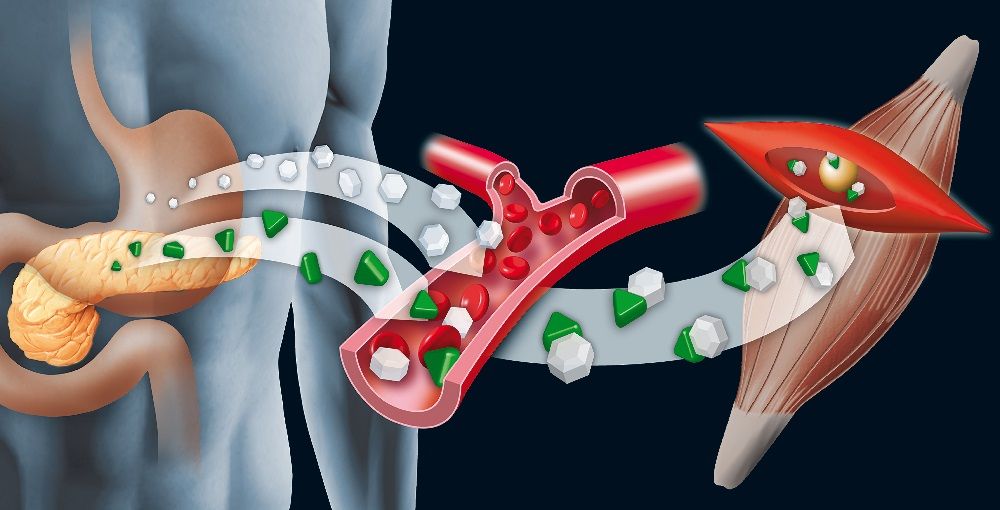We still don’t have male birth control.



It’s that time of year again. Sleigh bells overhead and our jolly, bearded benefactor wafting gifts down the chimney to eagerly awaiting hands. We’ve heard every version of this tale. Except, perhaps, the variant that is currently playing out in East Africa. In the funny way that magic tales and science fiction sometimes become reality, if you swap out sleigh bells for drones and gifts for emergency medical supplies, you’ve got the real world tale of Zipline, a company delivering 20% of national blood supply via drone in Rwanda. The Sequoia and A16Z-backed company recently announced it woul…

After less than eight months of development, the algorithms are helping intel analysts exploit drone video over the battlefield.
Earlier this month at an undisclosed location in the Middle East, computers using special algorithms helped intelligence analysts identify objects in a video feed from a small ScanEagle drone over the battlefield.
A few days into the trials, the computer identified objects — people, cars, types of building — correctly about 60 percent of the time. Just over a week on the job — and a handful of on-the-fly software updates later — the machine’s accuracy improved to around 80 percent. Next month, when its creators send the technology back to war with more software and hardware updates, they believe it will become even more accurate.

Each year, Science’s editors and writers highlight a top research achievement as their Breakthrough of the Year. For 2017, the honor goes to the first full observation of a neutron-star merger, made possible by detecting gravitational waves created by the stars as they spiraled into each other. But there a lot of other advances to talk about, from the oldest ice to the newest ape. Check them all out in this video rundown.
A video compilation of some of the biggest advances of 2017.

Many battery scientists are interested in the potential of lithium sulfur batteries because, at least in theory, they offer a high energy density at relatively low cost. However, lithium sulfur batteries face a number of challenges, including the low electrical conductivity of sulfur and the tendency of the cathode to expand significantly in size during the discharge cycle—a tendency that prevents the cathode material from being packed as densely in the battery as scientists would like.
To combat these problems and bring lithium sulfur batteries closer to reality, researchers at the U.S. Department of Energy’s (DOE) Argonne National Laboratory, the University of Illinois at Chicago (UIC) and Oregon State University have developed a new cathode material made of lithium sulfide that is encapsulated by graphene.
To make the cathode material, Argonne chemists Jun Lu and Khalil Amine heated lithium metal and then exposed it to carbon disulfide gas, a common industrial solvent. The creation of lithium sulfide, as well as the graphene encapsulation, happened spontaneously.
Currently have telomerase which can immortalize human cells in a petri dish. Currently we have stem cells and we can take regular cells even from someone who is 100 years old and we can deprogram the cells back to a pluripotent stem cell state. This is effectively de-aging the cells. There is an effort by some researchers (not Dr West) to achieve partial reprogramming of cells. This would be to use the reprogramming mechanisms to de-age cells while retaining differentiation.
Dr West mentions in the fifth video that he strongly disapproves of current stem cell treatment centers.
Dr. West notes that people did not believe that immortalizing human cells (even in a petri dish was possible). This was a belief held until the 1980s. Even Dr. Hayflick thought it was extremely unlikely to be achieved. Hayflick had found over 300 changes in the cells as they divided and reached their limit of division.
China has put $3.3 billion into making new highly compact nuclear reactors which would also use for nuclear powered drones.
The potential impact of nuclear-powered drones can be seen by comparing them with existing aircraft such as the MQ-9 Reaper, which is used extensively in Afghanistan and Pakistan in operations against insurgents. The Reaper presently carries nearly two tonnes of fuel in addition a similar weight of munitions and other equipment and can stay airborne for around 42 hours, or just 14 hours when fully loaded with munitions.

Recently pharma firms have released new diabetes treatments, including one in the past week. What’s more, a promising new therapy that attacks the cause of type 2 diabetes at its roots is in the development pipeline.
Summary: Recently pharmaceutical firms have released new diabetes treatments, including one in the past week. Moreover, a promising new therapy that attacks the root cause of type 2 diabetes is in the development pipeline. [This article first appeared on the LongevityFacts.com website. Author: Brady Hartman. ]
The CDC recently shocked the public when they reported that 40% of Americans walking around today would develop type 2 diabetes.
Many people develop type 2 diabetes as they age because their body’s response to insulin – the hormone that controls sugar levels – gets weaker.

The success of a gene therapy for blindness caused by a genetic mutation paves the way for gene therapies which treat other forms of blindness as well as similar treatments which treat other diseases.
FDA approves novel gene therapy to treat patients with a rare form of blindness. The first gene therapy approved for inherited disease.